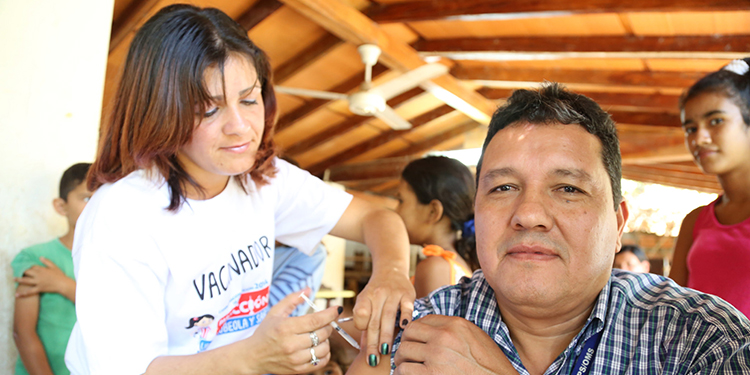Latest News
Passenger brings measles to Lower Mainland
Published 10:39 PDT, Wed August 29, 2018
Last Updated: 2:12 PDT, Wed May 12, 2021
Measles has come back to Vancouver.
In the most recent incident, announced
Monday, an adolescent who was simply in the same massive open air facility at
the Vancouver Cruise Ship terminal, caught measles through breathing the virus.
An infected person, who flew into Vancouver
International Airport and hadn’t yet developed the spots typical of measles,
passed through the 1.8-million-square-foot cruise ship facility before
embarking on their cruise on Aug. 6. That came within two hours of the young
person, who is now ill after also visiting the cruise ship terminal.
“Measles is considered the most infectious
disease that we know of,” says Dr. John Harding, public health physician for Vancouver
Coastal Health.
The normal way to catch measles is from
breathing in the virus from the air but, says Harding, “measles can also be
spread through sharing food, drinks or cigarettes or kissing a person with
measles.”
As soon as the adolescent’s measles were
confirmed with lab tests, authorities sent out a public notice Monday, Aug. 27 to anyone who was in
New Westminster’s Moody Park Outdoor Pool on August 19, 2018 between 1:30 p.m.
and 4:30 p.m. that they may have been exposed to the measles virus.
According to Dr. Monika Naus, medical
director for communicable diseases and immunization at the BC Centre for
Disease Control, the virus cannot be caught through pool water.
Both experts were clear that in no way are
the cruise ship terminal, the pool or Vancouver International Airport at fault.
The person with the virus didn’t know they had measles when they exposed others
to their virus.
Measles can be caught through the air, even
outdoors. Naus says there was a 2010 outbreak from one person attending an
open-air Olympics event at Robson Square.
According to Fraser Health, “symptoms of
measles include fever, cough, runny nose, and red and inflamed eyes (often
sensitive to light), typically starting seven to 14 days after exposure. These
are followed three to seven days later by a rash, which starts first on the
face and neck, then spreads to the chest, arms and legs, and lasts at least
three days. You may also notice spots inside your mouth that look like small
grains of sand on a red base.”
For a percentage of people, the virus causes
permanent brain damage or worse, kills.
It can be up to three weeks from the time you
catch measles until the symptoms appears. You can spread the virus to many
others before you feel sick. In addition, according to The Lancet medical
journal, if you haven’t been adequately vaccinated, you can have such a mild
case that you do not even feel unwell, but still pass on the virus to others.
“If you become ill and suspect you may have
measles, call your doctor and inform them that you may have been exposed to
measles, so that she or he will arrange to see you in a manner that avoids
infecting others in the waiting room,” Harding says.
With this disease so easily spread to others,
up-to-date vaccinations are the only option to keep yourself, your family and
your community’s families safe, according to Harding.
Naus says people need to have had two doses
of the vaccine if they were born after 1970 to be sure they are immune. Before
1970, most people had the measles so are resistant for life.
Naus says if you only think you had both
doses of the vaccine, “it’s not good enough. You really need to have it written
down. There is no reason not to get your second dose.”
The American Food and Drug Administration
says it is safer to get the vaccine than to have the measles, even if it is an
accidental third dose.
“Vaccination works,” Naus says. “We have to
maintain high rates of vaccination in order to prevent a resurgence in British
Columbia and Canada.”
Adds Naus: “Herd immunity protects the few
susceptible people by having the majority immune.”
Harding says “It takes 95% vaccine coverage
among the population to prevent outbreaks of the disease.”
In fact, Naus says, all people should check
their vaccination records. Getting the boosters you need every 10 years ensures
you will be able to fight off some nasty diseases.
The power of vaccines shows. How many of us
know people who have been paralyzed by polio? It was once a common disease,
leaving 90 percent healthy afterwards but for that one in 10, the problems
lasted a lifetime.
Public health officials worry Canadians have
forgotten the risks of diseases like measles and polio.
“Polio crippled tens of thousands of
Canadians until the vaccine was introduced (in 1955),” the Public Health,
Government of Canada website says,
The vaccine for measles is provided free of
charge. You have lots of options. You can pop in to your pharmacy or, according
the Amy Robertson, spokesperson for the Provincial Health Services Authority,
all free vaccines are also available through health units and doctor’s offices.
To find your nearest public health unit go to ImmunizeBC.ca”
The life you save may be your own or a
complete stranger’s.




























